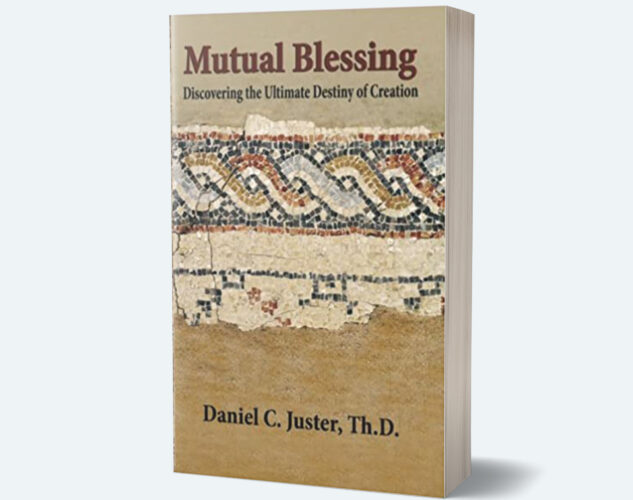Some people find the word blessing to be vague. However, the word could be translated enrichment, a gift that brings benefit. I wrote a book entitled Mutual Blessing, to argue that the whole universe is arranged in an order of mutual blessing or enrichment through interdependence. The beginning of the Bible reveals God’s order of mutual blessing while the very end, Revelation 21, 22, shows this order brought to its climactic fulfillment. Understanding mutual blessing enables us to understand God’s purposes and gives us a glimpse of our eternal state.
Genesis 1 presents the six days (cosmic days in my view-see Gerald Schroeder, The Science of God), and as the days progress we see an expansion of wonderful variety and beauty. God blesses each day and declares the creation good. He is blessed by it. God, by his own choice, makes himself partake of interdependence for mutual blessing. God and nature are in a relationship of mutual blessing. The seventh-day rest is best understood as the day that the great Artist steps back from what He had done to enjoy it! Human beings and nature are in a relationship of mutual blessing. That human beings are to care for the garden shows that the garden will bring blessing and human beings bring a greater quality of fruitfulness and beauty to the garden. The plants and animals are dependent on one another for mutual blessing. The bees pollinate the fruit flowers and provide the bees with their food. The fruit trees provide fruit for animals and human beings. Human beings care for and bless the trees. Science tells us that the very position of the galaxies are exactly tuned to provide for life on earth. The beauty of nature blesses humankind. Humankind is charged to be a good steward of nature, which is implied by ruling as a vice-regent of God, the meaning of being in the image of God.
In human life itself, there are arrangements of mutual blessing that astonish us when we think about it. The artist and his patrons and those who enjoy his art. All are enriched. The entrepreneur who cares about his employees enriches them, and they him in return. The inventor blesses with his invention and is enriched by the benefit it brings along with the income. The manufacturer produces a product to enhance the lives of those who purchase the product. He and the employees are enriched in return. The teacher and student are mutually enriched. Parents and their children are in mutual relationship of interdependence for mutual blessing. It is an awesome relationship.
The male-female distinction is one of the greatest examples of distinction and interdependence for mutual blessing. From such blessing comes the enrichment of children. This distinction for mutual blessing, especially in biblical based marriage, is so enriching, I can hardly begin to get my arms around it. I am awed by it daily. It is overwhelming. God’s design in covenant monogamy is the greatest fulfillment of this distinction for blessing.
However, the greatest of all mutual blessing of all is the human relationship with God. God finds fulfillment somehow in our love and relationship with him. We find our fulfillment in God’s love and relationship with us. He is the one who makes all the distinctions in creation for mutual blessing.
The eternal state, everlasting life, is an enhancement and perfection of these aspects so that we can enjoy God and one another along with nature, art, and beauty as it will be in that age forever.
The Devil is the great leveler. He desires to destroy distinctions, destroy the order of mutual blessing, and then destroy the creation in his hatred for God and humankind. Can we see some of this both in environmental destruction and in the rebellion against the biblical order for the male-female distinction?
This book was written so that you might enjoy life with greater fullness and that you are prepared for eternity. The best is yet to be.









